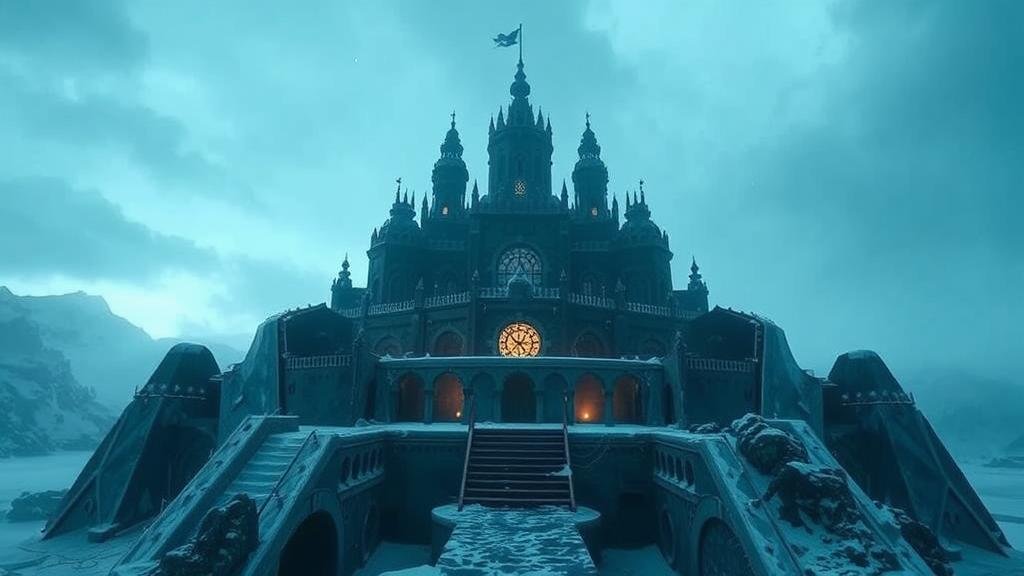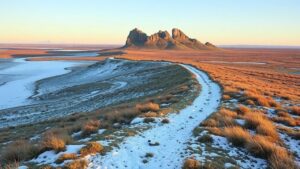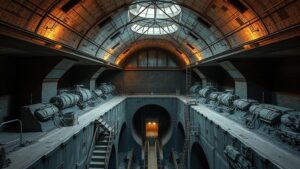Investigating the “Lost Citadel of the Ice Lords,” rumored to exist in Antarctica’s icy depths.
Investigating the Lost Citadel of the Ice Lords
The Lost Citadel of the Ice Lords is a captivating legend that has spurred curiosity and intrigue among adventurers, historians, and enthusiasts of the unexplained. Rumored to be buried beneath the vast icy expanses of Antarctica, this citadel is said to have been the home of an advanced civilization. This article will explore the history, exploration efforts, and scientific considerations surrounding this mysterious location.
The Origins of the Legend
Reports of the Lost Citadel date back to the early 20th century. In 1939, explorer John S. R. McGowan claimed to have discovered ancient ruins during a covert expedition. According to McGowan, the structures displayed architecture that suggested advanced engineering beyond what was believed to be possible for its time. The embodiment of the Ice Lords, an ancient ruler who purportedly fostered a civilization thriving in harsh conditions, added to the citadels mythical status.
Modern Explorations and Discoveries
Interest in the Lost Citadel surged again in the 21st century as technological advancements allowed for deeper exploration of the Antarctic continent. Notable initiatives include:
- NASAs IceSat Mission: Launched in 2003, this satellite provided detailed elevation data of the Antarctic ice, revealing anomalies that sparked further investigations.
- The Antarctic Geological Drilling (ANDRILL): This undertaking, concluded in 2007, sought to gather sediment cores from the Antarctic continental shelf, revealing clues about past climates which could potentially hint at human activity.
These explorations have yielded tantalizing geophysical data suggesting the presence of large, hidden structures beneath the ice, fueling theories about the existence of the Lost Citadel.
Scientific Analysis
While many expeditions have aimed to validate the existence of the Lost Citadel, scientists emphasize the need for skepticism and thorough analysis. Observations often arise from interpretations of radar images and ice core samples. For example, a 2018 study published in the journal Geophysical Research Letters identified geomorphic features that resemble ancient designs but could simply be a natural phenomenon caused by glacial activity.
Implications of Discovery
If confirmed, the discovery of the Lost Citadel would have profound implications not just for archaeology but for our understanding of human civilization. Key points to consider include:
- Historical Clarity: It could redefine timelines of human migration and settlement patterns.
- Cultural Impact: Discovering a civilization adept at surviving in extreme conditions may inspire contemporary innovative practices in architecture and sustainability.
- Scientific Collaboration: A successful expedition would likely require interdisciplinary collaboration, uniting archaeologists, climatologists, and engineers.
Challenges of Exploration
Exploring such a remote and inhospitable region poses significant challenges, including:
- Logistical Difficulties: The severe weather conditions and difficult terrain require specialized equipment and experienced personnel.
- Environmental Concerns: Disturbing ancient ice layers could have unforeseen consequences for the fragile Antarctic ecosystem, which necessitates careful planning and adherence to international regulations.
Conclusion
The quest to unearth the Lost Citadel of the Ice Lords remains an elusive and ambitious endeavor. Scientific expeditions continue to stir interest and debate, but confirming the existence of this mythical site necessitates rigorous investigation and caution. As technology advances and our understanding of the Antarctic landscape grows, the potential for discovering lost civilizations becomes more tangible. The allure of the Ice Lords and their citadel serves as a reminder of the vast mysteries our world still hides beneath its icy veil, igniting the human spirit of exploration and discovery.
Actionable Takeaways
For those interested in the ongoing exploration of Antarctica and ancient civilizations:
- Stay informed on scientific publications regarding polar archaeology.
- Support initiatives that prioritize environmental preservation in sensitive exploration areas.
- Engage with community discussions and educational platforms that explore human history and its mysteries.



